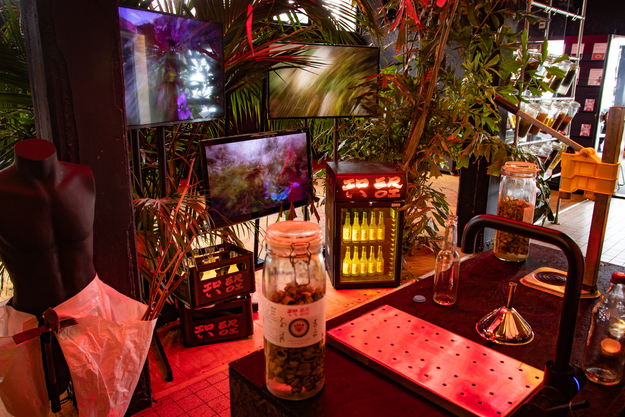An energy drink, as it sounds, is typically produced in a dedicated supply chain by literally pouring energy into each bottle. However, EROI, which stands for Energy Return on Investment, best avoids devoting energies to its production: the resulting Drink is mere a “by-product” derived from the process of controlling an invasive plant.
In the exhibition, you could witness artefacts left behind by Japanese artist Yoshinari Nishiki who attempted to eradicate invasive Japanese Knotweed. Nishiki had prepared ingredients for the special Amsterdam edition of EROI Drink, allowing the audience members to bottle their own drinks within the exhibition space.
EROI means romantic in the Japanese language and heroes in the Italian language, making itself suitable for an energy drink name. EROI is also a measure of energy system efficiency in ecological economics that has been increasingly vital in recent years.
Unlike a normal energy drink, EROI Drink’s energy does not come from caffeine but Resveratrol which is mainly contained in the roots of Japanese Knotweed. When dried for two weeks, they become a herbal medicine called Hu Zhang which some studies claim to slow down inflammations caused by coronavirus.
Yoshinari Nishiki
Yoshinari Nishiki is a Japanese artist based in Rotterdam. In his work, Yoshinari pays attention to the entanglement of economics and ecology. He is the founder of Technology of Future Utopia (TOFU), a company that focuses on artistic intervention in logistics and economic systems.
Information
14 April – 25 June
Tuesday – Sunday
12:00 – 21:00
Free Entry




